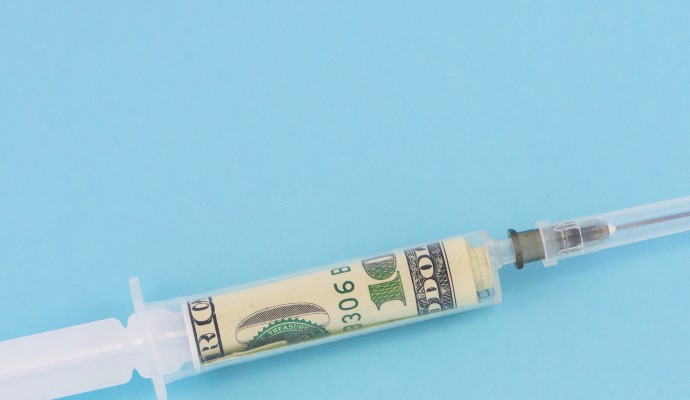3 Trends That Will Drive Healthcare Revenue in the Future
The end of the general hospital, less mass-produced therapies, and a change in how healthcare is financed will drive 85% of healthcare revenue, experts predict.

Source: Getty Images
- Healthcare spending is unlikely to continue on its upward trajectory in light of emerging technologies, the ability to cure and prevent disease, and engaged healthcare consumers. But this will have a significant impact on where providers get their revenue, according to industry experts at Deloitte.
In a new report, experts estimated that healthcare spending will be $83 trillion by 2040, about $3.5 trillion less than what CMS actuaries estimate using their own methodology.
The difference—or well-being dividend, according to Deloitte—is driven by a significant reduction in expenditures on treatment, the report stated.
“While Deloitte’s projection runs counter to historic trends, we believe the US health care system has already entered the first stage of the Future of Health—a dramatic transformation that we expect will take place over the next 20 years,” experts explained in the report. “This future will likely be driven by new business models, scientific and technological breakthroughs, consumers armed with highly personalized data, and regulations that encourage change.”
While these changes and more (e.g., advances in data sharing, interoperable data, equitable access to care) can help the industry finally bend the healthcare cost curve, it also means a shift in revenue sources for provider organizations, the experts stated.
Most notably, provider organizations will notice a shift in revenue from the general hospital to more specialized care sites, experts wrote.
“Care is already shifting away from hospital-based settings to lower acuity, less expensive, more convenient settings,” the report stated. “Consumers will likely continue to drive providers to offer care in settings that are aligned with their preferences. Technological advances will likely redefine how care is delivered.”
For example, an acute myocardial infarction that requires hospitalization now could be prevented altogether in the “Future of Health” in which providers and patients leverage seniors and continuous in-home monitoring.
“Patients who do need care will likely receive it in highly specialized settings that are tailored to service a specific need rather than being a ‘one-stop’ for all disease states and specialties,” the report continued.
Health plans will also see a shift in revenue because of the emerging emphasis on preventive care supported by digital and patient engagement tools. This, in turn, will likely lead to less risky beneficiaries and therefore, new ways to redistribute risk across covered individuals.
Additionally, biopharmaceutical companies will experience revenue changes from a slowdown in mass-produced therapies and an uptick in personalized medicine.
Overall, healthcare revenue will move to organizations focus on well-being and care delivery, data and platforms, and care enablement, experts predicted.
Ten new archetypes—new roles, functions, and business models—will succeed in this future state focused on prevention and well-being and those healthcare industry incumbents will need to “reinvent themselves” to “become enterprises in one or more of these archetypes,” the report stated.
Those archetypes include the data convener, science and insight engine, data/platform infrastructure builder, personalized virtual health across, health products developer, localized health hub, specialty care operator, connectors and intermediaries, individualized financier, and regulator.
Regardless of archetype though, health systems and clinicians that “invest in next-gen capabilities and technologies will likely experience growth while those that continue to invest in traditional infrastructure and talent could be left behind.”
"Consumers have the power, and desire, to demand more personalized care from their provider — care that looks at their medical history compared to the social realities of their specific situation and lifestyle. We expect these empowered consumers will reward organizations that are focused on keeping them healthy,” said Neal Batra, principal in the life sciences and health care practice at Deloitte Consulting LLP.
“Those organizations that respond by personalizing health care in ways that are scalable to large populations can enable better outcomes at a lower cost and can realize the promise of a future that puts well-being at the center, eliminates waste from our health care economy and uses a significant well-being dividend to better our society as a whole,” Batra stated.
